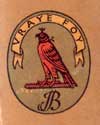Fri 16 May 2008
God’s Mechanics: How Scientists and Engineers Make Sense of Religion by Brother Guy Consolmagno, S.J.
Posted by boz under Books , Religion , ScienceComments Off on God’s Mechanics: How Scientists and Engineers Make Sense of Religion by Brother Guy Consolmagno, S.J.
[Read 11/2007] Religion. 2007

In God’s Mechanics Brother Consolmagno discusses religion from a “techie” standpoint. Br. Consolmagno is an astronomer, and many of his friends/coworkers are either scientists or in other technical fields. He tells both his and their stories about how to reconcile a life of faith with a life in science. I enjoyed this book tremendously; Br. Consolmagno shows how he (and others) can have “unprovable” religious beliefs and still work every day in highly scientific or technical fields.
He poses three questions that postulating the existence of God is useful in answering:
- Why is there something instead of nothing?
- What is the source and object of my deepest yearnings?
- How do I make sense of my life?
Some notes on what Br. Consolmagno says in this very engaging book:
The urge to find something “out there”, or the longing to find meaning is the search for the transcendent. It is very unsatisfying to just have a God who is responsible for the creation of the universe (question 1) but then has no further interest in it. What then, would be the point of our lives?
Religion: The various “sacred” scriptures serve as a sort of database – a record of the community’s history of interaction with the transcendent. It’s a template against which we can compare our own experiences of the transcendent. The collective religious wisdom (and Tradition) gives us the tools to “throw out” data points too far from the norm.
Sacraments are a concrete “thing” that only a Church can provide. The function of religion is to get closer to God, and the function of God is to address the fundamental questions of meaning and purpose. However, you cannot insist (or assume) that religious doctrines are a complete and final description of nature and God. Our understanding of God is always incomplete – as St. Paul says, “through a glass, darkly”.
Catholic theology notes that all doctrine, no matter how authoritative, embodying divine truth, still requires interpretation because our understanding of that truth is expressed in a given time and in an historically conditioned language and culture.
He recommends Saint Augustine (~400 AD): “On the literal meaning of Genesis” (trans. by John Hammond Taylor, S.J. 1982). Augustine puts a creative spin on biblical passages, as when he says “Let there be light” actually refers to instilling rationality into intellectual creatures.
A particular strength of Catholicism over denominations where worship depends totally on music and preaching is that even the most tasteless liturgy with the most inane homily from a priest who’s an outright scoundrel doesn’t stop a Mass from being a valid and worthwhile source of grace.
The absence of an electron looks mathematically like the presence of a hole [ in a semi-conductor ], just as the absence of good can look like the presence of an entity called evil.
